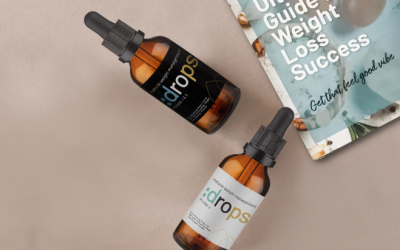How would you rate your overall gut health?
Have you ever suffered from constipation diarrhoea or bloating? Chances are that your gut health may be insufficient and in need of some support.
Did you know that we have more bacteria in our gut than human cells in the body, crazy right?
These tiny microbes are composed of bacteria, viruses and fungi and play a major role in digestion, immune modulation, and nutrient production. New evidence also suggests that gut bacteria may influence allergies and respiratory infections, mood, body mass and metabolism.
Knowing the impact that bacteria have on so many bodily functions, it goes without saying our gut plays a significant role in our general wellbeing.
In these thousands of bacterial cells most co-exist giving mutual benefit. You may have heard of the term ‘good bacteria’ and ‘bad bacteria’. Ideally you want a community of bacteria in which good bacteria thrive and the bad guys are kept under control meaning they don’t take over.
Under these conditions, along with good bacterial diversity most of us will benefit from health and vibrancy. However, when you have an imbalance of gut bacteria, and the dysbiotic bacteria dies, the cell wall fragments are released into the blood stream (Lipopolysaccharide fragments). It’s these fragments which become the biggest stimulator of the inflammatory response from leaky gut.
What does that look like?
Leaky gut syndrome or intestinal permeability speaks of an inflamed gut wall. This digestive condition can drive inflammation and potentially autoimmunity by enabling toxins, undigested food particles, and bacteria to leak through the intestinal walls and into the bloodstream.
What’s happening is that inflammation, causes the connections between the cells that line the inside of the gut (tight junctions) to become looser allowing for this passing of foreign substances, like undigested food particles.
The protective mucous layer of the gut is also impacted in leaky gut and starts to break down. In a healthy gut these foreign substances would normally be broken down. The addition of these foreign substances into your blood stream may potentially trigger an unwanted response from your immune system leading to some often-nasty long-term consequences.
Additionally, if you have leaky gut the damaged cells in your intestines are not able to produce enzymes needed for digestion which can result in poor nutrient absorption.
Several diet and lifestyle factors may contribute to leaky gut and include:
- Antibiotics which exhibit a negative affect your commensal bacteria, can lead to leaky gut and can leave you vulnerable to opportunistic infections. The negative effects increase if you have been exposed to repeated courses of antibiotics, even if they were from years prior.
- Excess Sugar, alcohol, and some processed foods generally increase inflammation and intestinal damage. And may feed existing dysbiosis, which can lead to increased gut irritation and leaky gut.
- Preservatives and chemicals in processed foods.
- Food intolerances. Eating foods that you have an intolerance to may contribute to leaky gut. These foods are also often inflammatory to you. Your body treats them as foreign invaders, this in turn produces antibodies which trigger an immune response (autoimmunity). Additionally, Zonulin, a protein created in the small intestine and liver that when elevated loosens the tight junctions of the cells of the small intestine, and is currently the only identified biochemical driver of leaky gut. The main contributors to elevated zonulin levels are gut dysbiosis and eating foods containing gluten or gliadin.
- Anti-inflammatories. The long-term use of non-steroidal anti-inflammatory drugs (NSAIDs) like ibuprofen as well as aspirin may also increase intestinal permeability
- Chronic stress
Some signs and symptoms associated with leaky gut include:
- Bloating after meals
- Altered bowel habits — like diarrhoea, constipation or Irritable Bowel Syndrome (IBS)
- Poor immunity
- Food allergies or intolerances will significantly impact gut bacteria
- Skin conditions like eczema, acne or rosacea
- Fatigue
- Headaches, brain fog or poor concentration
- Anxiety or depression
- Autoimmune conditions like celiac disease or Crohn’s disease.
The job of your immune system is to patrol our body in order to prevent possible attacks from foreign objects or substances.
When you have a leaky gut, the immune system is triggered by undigested food particles which then causes dysregulation and the possibility of autoimmune disease. Research also suggests that most people with inflammatory bowel conditions such as IBS, celiac disease, Crohn’s disease and ulcerative colitis may also have some degree of leaky gut.
Irritable bowel syndrome (IBS) is also a common condition associated with poor gut health and often presents as a collection of symptoms such as cramping, abdominal pain, bloating, diarrhoea, and constipation. People with IBS have some of these symptoms — such as cramping and diarrhoea or bloating and constipation — for at least 3 months.
Both Leaky gut syndrome and IBS may be difficult to clinically diagnose, but science is showing that Leaky Gut in particular is likely tied to a wide range of physical ailments. There’s the obvious connection to digestive symptoms, and then the increased research into links to skin irritation, fatigue, and chronic conditions.
If you are experiencing these symptoms, the following tips may be beneficial.
- Following a low-inflammatory diet. Remove gluten, dairy, additives, preservatives, and processed sugar for three months. Having a food intolerance test can help you quickly determine what foods are best for you to avoid. Remove processed and damaging foods and move towards whole plant-based foods, organic where possible. Add Collagen to support skin health, bone broth, gelatine, and fish to support the healing of connective tissue.
- Avoid coffee and alcohol. Coffee’s acidity can negatively impact the lining of your stomach and intestines, while alcohol can increase gut inflammation. Ensure you are getting enough sleep; too little or poor sleep can impact gut health and lead to intestinal permeability. Reduce stress. Stress increases cortisol and other stress hormones which can contribute to leaky gut. Get regular moderate exercise every week as this reduces stress and increases your feel-good hormones like serotonin and dopamine.
- Increase your intake of prebiotics and probiotics. Prebiotics feed good bacteria and support the formation of short-chain fatty acids, provide the healthy fibres to encourage the growth of your protective and healing gut bugs. Probiotics work by improving the environment for your good gut bugs to grow as well as help reduce the amount of bad gut bugs. Adding fermented foods such as kombucha and water kefir, provide diversity and a small quantity of good bacteria. Take a good quality probiotic prescribed for you, to assist in healing a leaky gut.
If you believe you may have a leaky gut or IBS, your Health Care Practitioner can work with you to help get your symptoms under control. Working with you to identify the ideal diet specific to you and help heal your gut.





